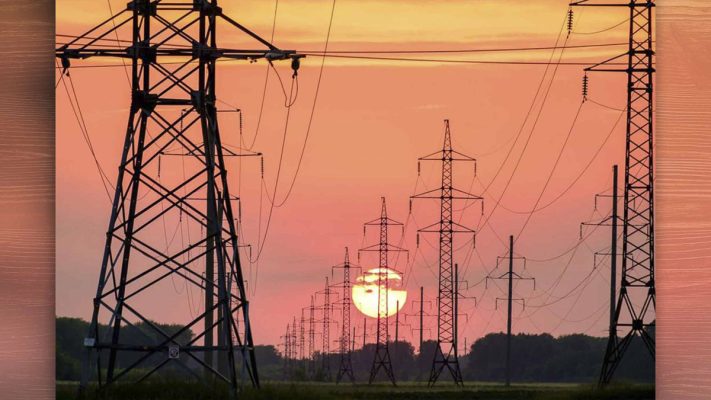
Washington residents might need proposed facility if the state is unable to meet future energy demands, which the company behind the project warns is growing more likely
TJ Martinell
The Center Square Washington
A proposed battery energy storage system near Goldendale under consideration by the Energy Facility Site Evaluation Council would, if ultimately approved by Gov. Jay Inslee, be able to provide 200,000 homes with electricity for up to four hours.
It’s a facility that Washington residents might need if the state is unable to meet future energy demands, which the company behind the project warns is growing more likely.
Tenaska is an independent power company based out of the Midwest and behind the proposed $250 million BESS, which would store excess electricity generated by the grid for later use. In an Aug. 13 presentation to EFSEC, company officials cautioned that “the region is increasingly at risk for rolling blackouts and brownouts,” which it blames in part to “aging transmission infrastructure that cannot meet current or projected demand.”
However, the presentation also noted that “data centers in the PNW, which are notorious for high energy use, are expected to more than double their electricity use in the coming years.”
Another contributor is the state’s transportation electrification efforts, with a ban on new fossil fuel vehicles taking effect in 2030. Currently, there are roughly 90,200 battery electric vehicles registered in Washington. Last year, light-duty electric vehicles consumed about 309,000 megawatt hours of electricity.
The dilemma facing Washington is twofold. The first is that its energy grid will require an additional 5,300-gigawatt hours by 2030 and 13,500 GWh by 2045 to meet demand, according to Tenaska’s presentation; one gigawatt is enough electricity to power 750,000 homes.
By 2050, electrical load growth is anticipated to increase by 92% compared to 2020 demand.
The second dilemma is that the new electricity must be from sources that conform to the state’s Clean Energy Transformation Act, which stipulates that utilities cannot use coal-based electricity starting next year, and by 2030 they can only use carbon neutral sources. By 2045, the energy will need to be from 100% renewable or “non-emitting” sources.
While Tenaska aims to have the BESS built in one year and operational by 2026, EFSEC has struggled to get final approval for a project that would generate clean energy needed to meet future demand. The Horse Heaven Energy Center was scheduled to begin construction in 2021 but has faced numerous delays, the latest of which came in May when Inslee sent the project back to EFSEC to increase its size and scope.
According to Inslee’s letter to the council, the original project would have generated 1,150 megawatts of electricity, 5% of the total needed to meet 2035 demand. Inslee wrote that 20 projects of similar energy generation will need to be built by 2035 if the state is to meet demand.
An E3 study released in 2019, the same year the law was enacted, warned that the Pacific Northwest region faced a near-term capacity shortage of up to 7,000 MW by 2025 and up to 10,000 MW by 2030.
“Planned resource additions do not fill this gap,” the study noted, adding that one of the causes of the energy gap was “renewable and storage additions with diminishing capacity benefit.”
A Pacific Northwest resource adequacy study released by E3 in March 2019 concluded that “it is possible to maintain resource adequacy for a deeply decarbonized Northwest electricity grid, as long as sufficient firm capacity is available during periods of low wind, solar, and hydro production” and that “natural gas generation is the most economic source of firm capacity today.”
This report was first published by The Center Square Washington.
Also read:
- POLL: Should Washington Raise the 1% Cap on Property Tax Increases?Clark County Today’s weekly poll asks whether Washington lawmakers should raise the current 1% cap on annual property tax increases.
- The Study of Sports Podcast, April 10, 2025: Some spring sports talk, including the challenges of hosting large track and field meets, plus an epic Mariners fandom storyIn the latest episode of The Study of Sports Podcast, Paul Valencia is joined by Cale Piland and Tony Liberatore for a mix of local sports coverage and one unforgettable Mariners fandom story.
- Public memorial for former Vancouver Mayor Royce PollardA public memorial will be held April 11 in Vancouver to honor former Mayor Royce Pollard and his lasting contributions to the city’s growth and development.
- Letter: The more you knowCamas resident Anna Miller criticizes a recent remark by Rep. Jasmine Crockett as racist and demeaning, and outlines Republican contributions to civil rights history in her letter to the editor.
- Letter: City vehicles speeding on the highwaysVancouver resident Peter Bracchi raises concerns about excessive speeding by city-owned vehicles, based on GPS data received through a FOIA request.
- Can $10 tolls be coming to the Interstate Bridge?Rep. John Ley examines a proposed Washington House bill that would double borrowing for the Interstate Bridge Replacement and potentially lead to high tolls affecting Southwest Washington drivers.
- Senate Republicans: WA property taxes will skyrocket under bill to remove annual capSenate Republicans are opposing Senate Bill 5798, warning it could sharply increase Washington property taxes by removing the long-standing 1% cap.











